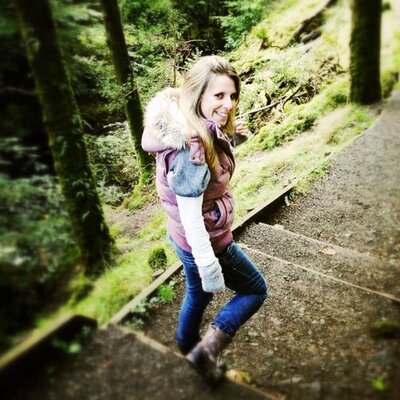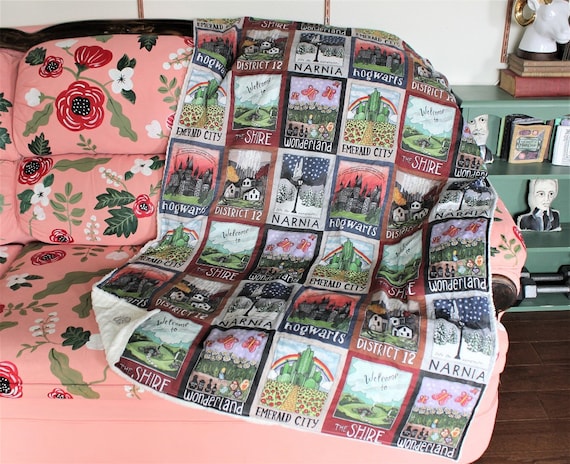'Beware of words. Be careful what you write. Leave no trails.
This is what the Gardeners taught us, when I was a child among them. They told us to depend on memory, because nothing written down could be relied on. The Spirit travels from mouth to mouth, not from thing to thing: books could be burnt, paper crumble away, computers could be destroyed. Only the Spirit lives forever, and the Spirit isn’t a thing.''Then all of them had left, once the trouble hit. They'd gone home to be with their families, believing love could save them. "You go ahead, I'll lock up," Toby had told them. And she had locked up, but with herself inside'
'Love’s never a fair trade. So Jimmy’s tired of you, so what, there’s guys all over the place like germs, and you can pick them like flowers and toss them away when they’re wilted. But you have to act like you’re having a spectacular time and every day’s a party.'
I’ve been meaning to read The Year Of The Flood since I attended a launch event at the Edinburgh Book Festival a couple of years ago, I can’t believe it’s actually taken me this long to get round to - It’s Margaret Atwood, who I love. It’s dystopian future, which I like reading about if it’s written well. It’s Margaret Atwood writing about a dystopian future, which I’ve always enjoyed. I guess it was pretty much a given that I was going to love ‘The Year Of The Flood’, especially as I enjoyed it’s predecessor ‘Oryx and Crake’ as much as I did.
Set around the same time as Oryx and Crake, The Year Of The Flood has all the vital dystopian future ingredients: climate change; genetic manipulation of all living things, humans included; a massive corporate elite that rule over everything, and the poor living in disease ridden ghettos, and whilst I imagine it would work as a standalone, it also ties in seamlessly with Oryx and Crake: it’s Jimmy’s world from another angle. Whilst Jimmy and Crake were ‘safe’ in the compounds, the characters we encounter here are from Pleeblands – the rough side of town so to speak and the two books are so cleverly interwoven that it’s almost hard to believe they were written so far apart. The two main characters are seemingly the sole survivors of a ‘waterless flood’ and the novel tells their story, moving from one point of view to another telling the story both as it unfolds and via flashbacks.
It might be prudent to point out here that Margaret Atwood does not write happy stories. Often. That doesn’t mean her work isn’t amazing; it is. Her novels just aren’t generally happy happy hearts and flowers and happy endings. They’re thought provoking, and intelligent and inspiring and sometimes quite frightening, the language is sharp and the detail is breathtaking. She is also excellent at writing about relationships – not romantic relationships, but relationships generally. Atwood doesn’t try to create characters that you like, I don’t think, but ones that you want to understand and oftentimes, ones that on some level (albeit a level you’d rather not acknowledge) you can relate to and that’s what she does here. You want to know more about Toby and you can’t help rooting for her, you remember the girl like Amanda at your school and you are practically eaten up remembering when you were in a Ren/Beatrice/Amanda triangle. You want to put Ren in your pocket as much as you want to shake her. She picks out the flaws not only of her characters but of her readers and she makes you think. She does relationships, female relationships so, so, so well.
The Year Of The Flood is an example of all that is good about Margaret Atwood, and I think the reason it works so well is that it is so believable. Frighteningly so (although I think it would be worse if you read YOTF having not first read Oryx and Crake, the edge is taken off somewhat, the prior knowledge means you aren’t quite as horrified as you might have been otherwise.) Atwood never actually tells you when the book is set and so you never know just how far into the future you’re looking. You can imagine that climate change could lead to extreme weather conditions and that we could easily end up with a genetically modified lamb and lion splice or cosmetic surgery that’s gone as far as scalp transplants. It seems crazy yet not beyond the realms of possibility and that’s what makes it work. It isn’t a safe easy book. You don’t read it and feel comforted or content or certain of anything. Atwood doesn’t pander to her readers; she scares them. She goes out of her way to blind you with things when you least expect them, to leave you almost cold which is why it’s so hard to write about exactly what it is about her and her work that you like. I mean, there you are reading away, getting lost in the story, riding the wave when suddenly there’s a human finger in a burger and whilst you’re horrified you don’t quite question it because despite the fact it goes against everything you know it somehow makes sense….it’s uneasy and it’s uncomfortable and it’s really really good.
It’s not my favourite of hers – that accolade will always belong I think to The Blind Assassin – it’s probably not even in the top three but I did really enjoy it, and I do and will recommend it. Go forth, and read.



